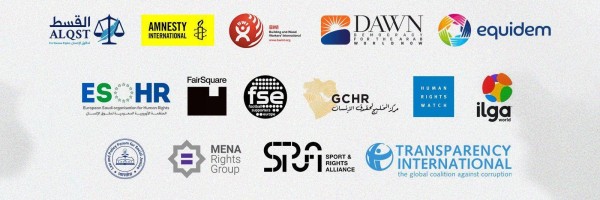United Nations experts have published an urgent appeal they sent to Saudi Arabia on 11 May 2020, expressing serious concern at the judicial harassment and prolonged detention of cleric Mohammad al-Habib and teenager Murtaja Qureiris, which may amount to serious human rights violations. It calls on the Saudi authorities to provide information, including on the legal basis for their detention and whether the allegations of torture or other ill-treatment against them have been investigated. A reply from the Saudi Arabian authorities government has been received but ALQST has not been able to view it yet.
ALQST welcomes this initiative, which was sent by eight UN special procedures mandates holders. According to the appeal, Mohammad al-Habib, a 56-year old Saudi cleric based in Safwa, was arrested on 8 July 2016 following his advocacy in defence of the rights of the Shi’a minority. Following his arrest, he was taken to al-Mabaheth prison in Dammam, where he was allegedly held incommunicado and in solitary confinement, and subjected to torture and ill-treatment. He was brought to trial before the Specialised Criminal Court in 2016, and following an initial acquittal, was sentenced in 2018 to seven years in prison for “inciting sectarianism and sedition”, which was upheld by the Supreme Court in March 2020. He remains in detention at al-Mabaheth prison Dammam, and is reportedly affected by ongoing health problems.
The communication also describes the case of teenager Murtaja Qureiris. According to the appeal, he was arrested on 20 September 2014 after taking part in “Arab Spring” demonstrations in al-Qatif in 2011, at the age of 10. He was placed in detention at the Dar al-Moalahaza al-Ijtima’iya juvenile detention centre in Dammam city, where he was held in solitary confinement, tortured and forced to sign a confession. He was brought to trial before the Specialised Criminal Court in 2018, facing charges including “participation in a terrorist organization”, with the public prosecution seeking the death penalty against him. In 2019, he was sentenced to twelve years imprisonment, and is currently in detention at al-Mabaheth prison in Dammam, with his appeal suspended due to the ongoing COVID-19 outbreak.
In light of this information, the UN experts express their serious concern at the prosecution and ongoing detention of Mohammad al-Habib and Murtaja Qureiris, including the reported use of counter-terrorism legislation to criminalise free speech and at the use of torture and ill-treatment for the purpose of extracting confessions, which if proven to be true, highlight troubling trends which amount to serious human rights violations. As such, the appeal calls on the Saudi authorities to provide information, including on the legal basis for their detention, whether the allegations of torture or other ill-treatment against them have been investigated, and their current physical and mental health.
ALQST welcomes this appeal alerting the international community to these cases. Furthermore, ALQST calls for further pressure on the Saudi authorities to release Mohammad al-Habib and Murtaja Qureiris, drop the charges against them, and investigate the violations of their rights while in detention.




